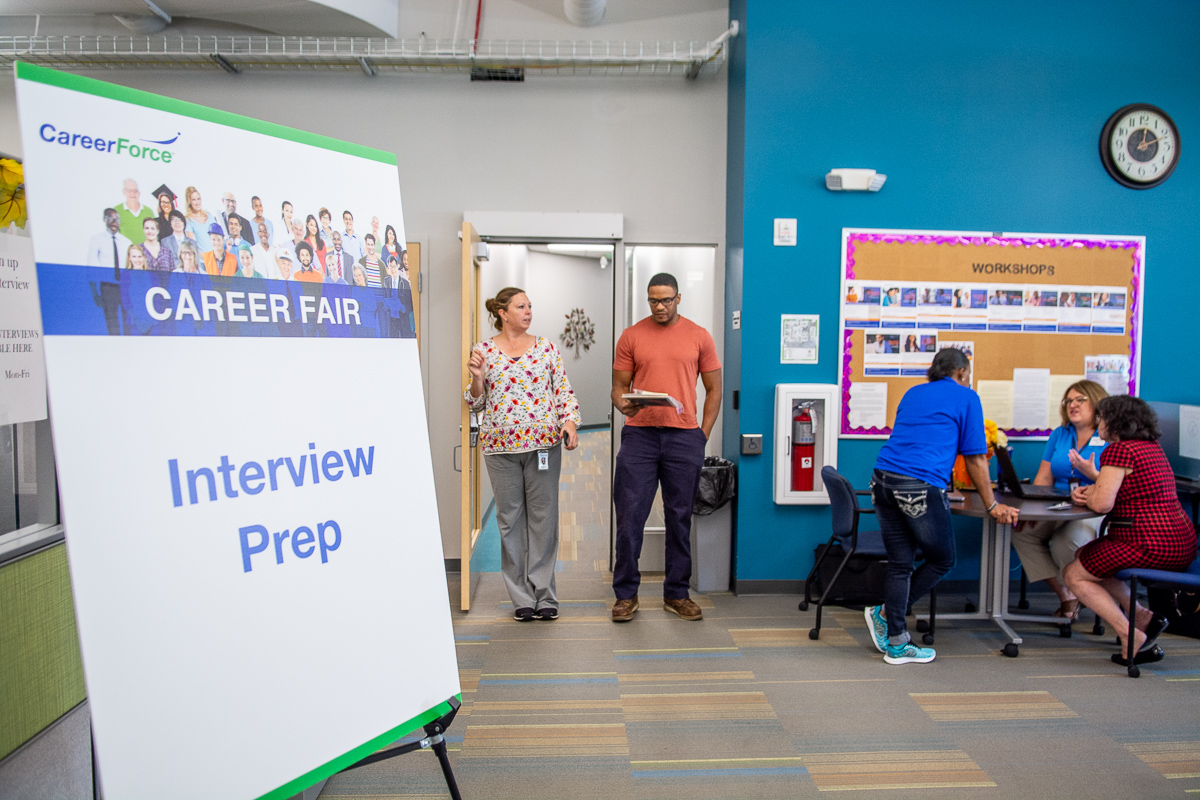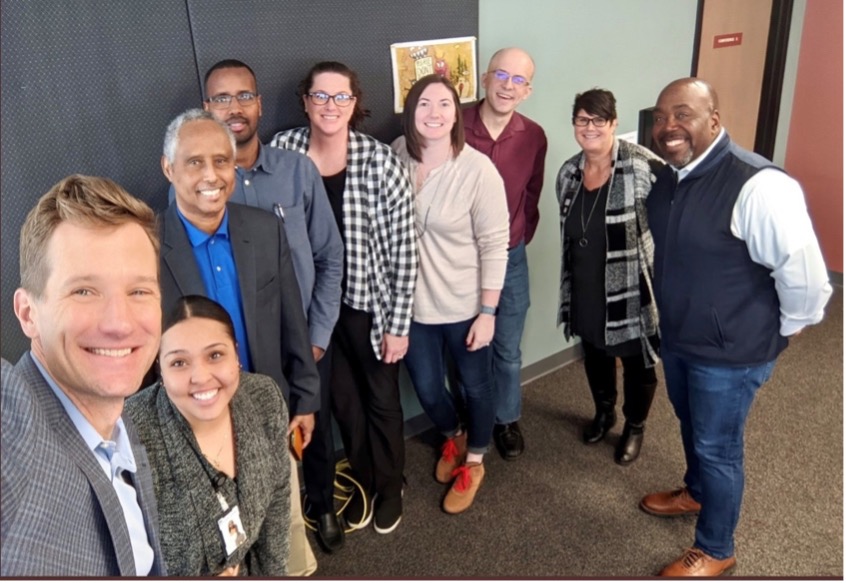Reform Programs to Remove Systemic Barriers
4/26/2022 10:31:42 AM
Deputy Commissioner Marc Majors

Driving long-term progress in racial equity in Minnesota’s economy requires new thinking. While incremental changes are important, it’s the systemic changes that examine the root of how systems work and transform them for stronger outcomes that drives lasting change.
As we continue our series on DEED’s five racial equity commitments, today we turn to commitment #3: to reform programs to address systemic barriers.
Inclusive grantmaking practices in Employment and Training Programs
In 2019, the Employment and Training (ETP) Grants division of DEED made a commitment to transform grantmaking to improve speed, transparency, and innovation for our grantees – many of whom concentrate services towards communities of color. Complex processes and opaque requirements were inhibiting new entrants into our competitive grant process, and inhibiting the effectiveness of taxpayer dollars to help job-seekers success.
In the last three years, our ETP division has embarked on a systemic effort to change that. Following dozens of community meetings with stakeholders, we:
In 2021, nearly 50% of the people who reviewed applications for workforce training for youth and adult competitive grants were non-DEED staff. These community reviewers all had connections to underserved communities and experience with the needs of job seekers. We believe this more inclusive process leads to funding decisions that support our commitment to reducing disparities in employment in Minnesota.
Supporting Business Owners of Color
DEED provides funding to local partners such as CDFIs and non-profits on a statewide basis to deliver technical assistance for small businesses across Minnesota. We work with network Community Development Financial Institutions (CDFI) and nonprofit community organizations that have deep relationships with communities and business owners. The local partners reflect the cultural backgrounds and languages spoken by all types of Minnesota business owners and entrepreneurs. Our local partners have staff that provide technical assistance and loan capital, allowing local Minnesotans to do business and receive state support from trusted community partners. DEED regularly updates the list of business support organizations we work with to ensure it is relevant and responsive to local community needs.
The partnership between DEED and local partners mobilized to grow their impact during the COVID-19 pandemic, especially to reach business owners in Black and Indigenous communities and other communities of color. In 2020, DEED held 137 webinars or outreach events, and provided $15 million in new funding to BIPOC-owned businesses. In 2021, DEED provided $8.5 million to BIPOC-owned businesses, and we are working to distribute another $4.5 million.
This considerable shift in our approach had strong results: we had a 30% increase in BIPOC applications for Main Street Covid Relief business grants, and doubled the number of BIPOC partners (16) we work with to get dollars into community.
In addition, the pandemic has changed the way we promote and offer programs and opportunities. For example, entrepreneurs can now find our Small Business Development Center videos – on starting and growing a business – on our YouTube channel. Some pages and videos had more than 40,000 views. In addition, Small Business Assistance Office videos of our Guide to Starting a Business have generated over 10,000 views.
CareerForce Adapts Service-Delivery Mode
The original model of one-stop workforce centers located statewide where job seekers and staff met in person was created years ago. With the pandemic, this model had to change and the creative and adaptable CareerForce staff at DEED responded to that need. Services were quickly transformed to allow connection by phone or virtually to ensure job seekers could continue receiving the support they needed.
These changes in services delivery led to greater innovation with the “Good Jobs Now” campaign. In the first phase of the campaign, CareerForce staff and Unemployment Insurance staff made calls to individuals in Minnesota receiving unemployment insurance (UI) benefits. The goal of the phone conversations was to connect unemployed Minnesotans with a strong work search plan and with resources. The next phase of Good Jobs Now for CareerForce means continuing to reach out to UI applicants – as well as non-UI applicants with some of the greatest barriers to employment success – to provide assistance and services.

DEED Commissioner Steve Grove and staff at DEED’s CareerForce location on East Lake Street in Minneapolis
DEED staff are also working to connect people who are interested in developing new skills to help them find careers projected to have strong demand into the future and that offer family-sustaining wages. Since the calls began, 1,069 people have been referred to the Dislocated Worker program, 232 people have been referred to specific training programs, and 2,997 people have been referred to other services to assist them in preparing for good-paying, in-demand employment.
In addition to this campaign, CareerForce staff are pursuing partnerships with local community nonprofits and libraries to ensure that the state’s resources are located in places where people can find them.
Reforming Unemployment Insurance (UI)
Perhaps no other DEED program has received more attention these last three years than unemployment insurance. But until last year, the program operated under a 1939 law that prevented high school students from getting unemployment insurance, even when they met all the other requirements and their employers paid into the system. This antiquated law was preventing many young people – who support their families through income from their jobs – from obtaining the income our system guarantees when they were laid off from work. Disproportionately, these young people are students of color. We advocated for changing the law by worked with legislators and advocates during the last session – the change will take place in July 2022, thereby building a stronger and more equitable system for young people in our state.
Additional shifts to DEED’s UI programming included advocating to change a law so English as a Second Language (ESL) classes count as an allowable training type for people receiving Unemployment Insurance (UI). And we rebuilt the UI technical infrastructure to improve language access in Somali, Hmong, and Spanish, and to improve the mobile interface.
Changes Continue with Racial Equity Focus
The difficulties of the past three years have further demonstrated that more robust efforts are needed to eliminate workforce disparities and expand economic opportunities for those who face the greatest barriers. At DEED, we will continue our efforts and work in relationship with community leaders, legislators and others who want to see our state do better. We believe race should not be a predictor of a person’s opportunity to thrive, and we commit to ongoing examination of our processes and policies to make that possible for every Minnesotan. With the public’s advice and feedback, we’ll continue to reform programs to address systemic barriers.
Economic Development
communities